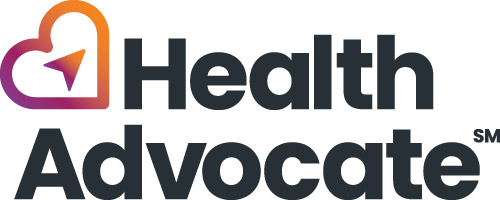
Data Targets At-Risk Employees to Improve Outcomes and the Bottom Line
Data Targets At-Risk Employees to Improve Outcomes and the Bottom Line
By Chris Weale, Director of Specialty Sales, Chronic Care Solutions
About half of all adults have one or more chronic health conditions, such as diabetes, heart disease and asthma while one in four adults has two or more chronic health conditions. Many of these patients are not receiving recommended care for their condition, which drives up healthcare costs and leads to poorer health outcomes. In fact, healthcare costs are five times higher for employees with a chronic condition than those without. Yet, most chronic conditions and diseases are controllable and preventable. Getting employees to take action to adhere to preventive recommendations and better manage their chronic medical conditions is key to lowering healthcare costs and improving member outcomes.
Health Advocate offers solutions that utilize medical and pharmacy claims, lab/biometric screening results and Health Risk Assessment responses to identify and risk stratify members with chronic medical conditions. We then provide members one-on-one coaching from a dedicated nurse coach to educate them to better manage their conditions, reduce long-term medical costs and become more effective healthcare consumers.
Our analytics also enable us to deliver data-driven, proactive, targeted home mailings and mobile app push notification communications to members who are non-adherent to preventive and chronic medical condition care. Employees are reminded of recommended preventive screenings like mammograms and colonoscopies, for example, as well as vaccinations. The communications include information to promote healthy lifestyles.
In addition to delivering preventive messaging, the data enables us to send timely condition-specific messages emphasizing the importance of doctor visits, evidence-based tests like cholesterol monitoring, cancer screenings and medication adherences.
Issuing preventive and condition-specific reminder messages throughout the year provides ongoing intervention to help improve compliance, and to prevent or reduce complications, resulting in better medical care, improved outcomes—and lower costs.
Data Increases Engagement
Our highly integrated, personalized data-driven communications also enable us to increase engagement and drive participation in all our services. With our mobile app, for example, employees can receive push notifications of eligibility in our chronic care condition management and wellness coaching programs that promote wellness/lifestyle changes. They can also easily connect to us to find in-network providers and schedule appointments.
Our experts analyze the data, enabling our clinical experts to view the employee’s health status, risks and gaps in care. For those with chronic conditions, we then offer coaching providing evidence-based support tailored to the employee’s risk level and needs.
This targeted, one-on one coaching at each point of contact motivates employees to take action to receive important preventive care, and to remain engaged in improving their health to better manage their condition and adhere to their treatment plan.
Insight into Cost Drivers
Our data enables us to provide valuable client reporting, monthly, quarterly or bi-annually. Our metrics provide a breakdown of disease prevalence and risk within the population, and pinpoint specific risk and cost drivers around the impact of chronic medical conditions. For instance, we can identify the appropriate ER use as well as brand-to-generic medication usage.
The Result: A Measurable ROI
With the use of these powerful analytics, Health Advocate helps companies close gaps in care, increase compliance and medication adherence, while offering a measurable return on investment. Our chronic disease programs, for instance, can see an ROI of 4 to 1 or greater.
To learn more about our data-driven programs, visit our Solutions page or contact us today!
Next story: In Honor of Colorectal Cancer Awareness Month, Let’s Talk About Prevention

